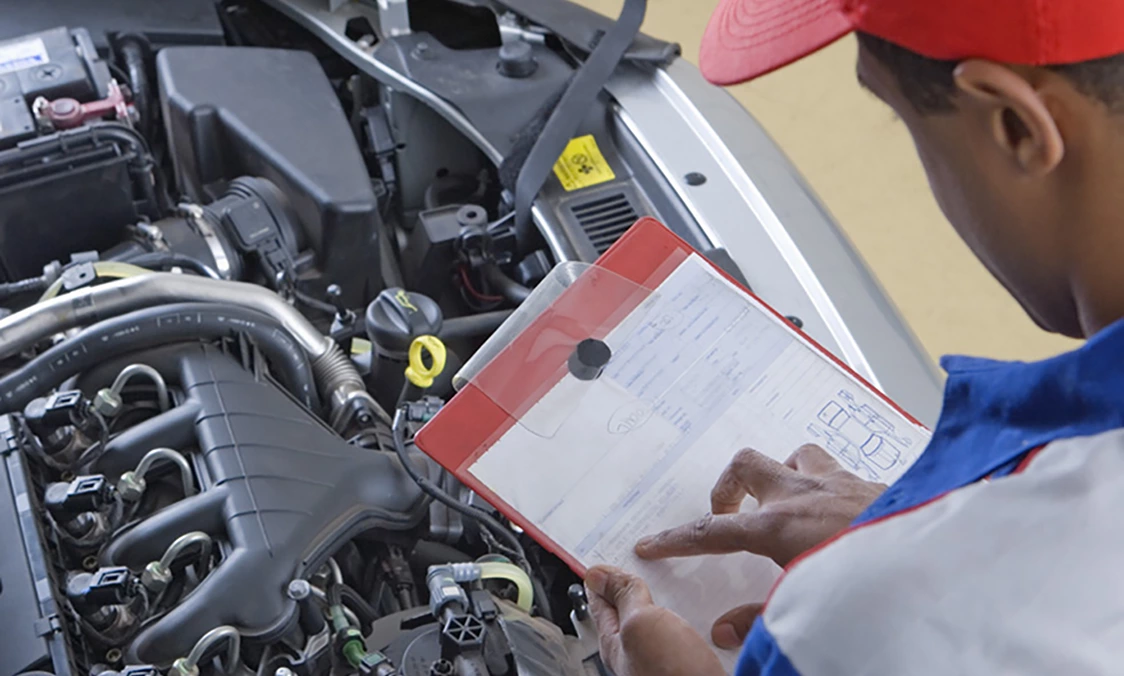Tacky or Techie? The Tachometer.
December 30, 2018
There's a gauge that many vehicles have that says RPM on it. And there are a lot of people who either don't pay any attention to it or don't even know what it is. Here's why it's a good gauge to know about.
It's called a tachometer, and that "RPM" label means it is measuring how many revolutions per minute (RPM) the engine is turning. Automotive experts know that a vehicle's engine can be damaged if it turns too fast (revving too high) or too slowly ("lugging" the engine).
A tachometer (sometimes called a tach) is almost a "must-have" gauge for vehicles with a manual transmission; the driver has to manually change gears; the tach helps the driver know when revolutions are in the optimal range.
Some say you don't need a tachometer if you drive a vehicle with an automatic transmission. It's true that most drivers of automatics don't even look at it. But there are times when paying attention to the tach can help you prevent an expensive repair.
Here's a good example. Manufacturers now build many of their automatic transmission vehicles with shift paddles. They let you shift gears without a clutch. That's manual shifting, and drivers need to know they're not revving the engine too high. That's where the tachometer comes in, since it shows you visually when you are in the red zone (RPM too high).
Here's another way the tach can help you: fuel economy. Generally speaking, the lower the RPM, the better the fuel economy. It's not good to go too low, of course, and the tachometer will help you find that spot of maximum efficiency.
You can also spot problems by paying attention to the tach. When your vehicle stays in first gear longer than usual (higher reading on the tach), then the RPM dip lower than usual after shifting, it may be that your vehicle's transmission is skipping a gear. Plus, if your vehicle's RPM go up but your speed doesn't, it could mean your transmission is slipping. Either situation should be checked by a trained technician.
If your commute takes you down some long grades, you might like to put your vehicle in a lower gear to help slow down the car (and not burn up the brakes). Having a tachometer keeps tabs on when your engine is revving too high.
So, consider the tachometer a "bonus" gauge. It's one more helpful assistant that can help you spot and prevent problems in your vehicle.
Need Service?
More articles from Auto Lab Troy

Don?t Be Hosed (Radiator Hose Replacement)
January 18, 2026
If you are like most drivers, you dont worry too much about what shape your radiator hoses are in. But they are a vital part of your coolant system, helping carry engine coolant from the hot engine to where it is cooled off in the radiator. When the cooling system has a problem, you will likel... More

Smooth Operator (Shock Absorbers)
January 11, 2026
When you are comfortably headed down the road, you may not realize how many of the imperfections in the driving surface are being smoothed out, so you hardly feel most of them. You can thank your shock absorbers for a lot of that comfort, and its important to make sure you keep your shocks in go... More

What?s That Yellow Squiggly Line Anyway? (What Warning Lights Mean)
January 4, 2026
You may have noticed when you start your vehicle, youll see several symbols light up on the dash. Theyre different colors and shapes, and sometimes its hard to figure out what each of those symbols mean. They are warning lights and symbolize something in your vehicle is sending you a message. I... More










